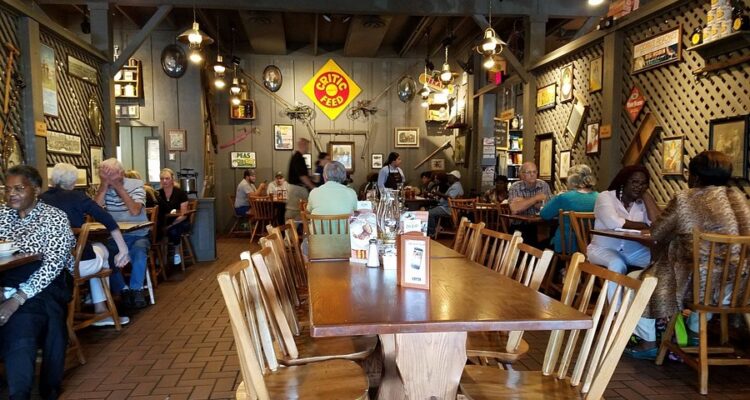When Cracker Barrel unveiled a sleek new logo this August, scrubbing the beloved “Old Timer” icon from its branding, it wasn’t just nostalgic fans who cried foul. The chain’s own co-founder went on the record expressing concerns the restaurant had lost its way under CEO Julie Felss Masino.
Masino, who took the helm in 2023 after executive stints at Taco Bell and Starbucks, had promised to reinvent the 55-year-old brand for a new generation. But her $700 million transformation strategy — including the controversial logo redesign — has been branded an expensive misstep.
At 93, co-founder Tommy Lowe didn’t hold back. In an interview with local outlet WTVF, he called the redesign “pitiful” and accused leadership of “throwing money out the window.” Lowe, who helped open the first Cracker Barrel in Tennessee back in 1969, warned that the chain risks losing the very identity that made it beloved: “If they don’t get back to keeping it country, then it ain’t gonna work.”
The controversy began in August when the company revealed the new branding without the “Old Timer.” The backlash was immediate. Investors, customers, and even President Donald Trump slammed the move. The stock slumped, and within a week the board reversed course. But Lowe argued the issue went far deeper than cosmetics. “They need to work on the food and service, and leave the barrel — the logo — alone,” he said.
His criticism highlighted another growing concern: leadership’s background. Many questioned what Taco Bell could possibly teach about country hospitality, a pointed jab at Masino and her modernization vision. Investors have also been running out of patience. Cracker Barrel shares have plummeted nearly 70% over the past five years, sliding from highs above $180 in 2018-2019 to around $60 today. Meanwhile, competitors like Texas Roadhouse and Darden Restaurants have thrived.
The pain only deepened in May 2024, when the company slashed its dividend by 80%, dropping its quarterly payout from $1.30 to just $0.25 per share. That move, paired with the logo fiasco, left shareholders frustrated and confidence in leadership eroded.
Activist shareholder Sardar Biglari, who owns nearly 9% of the company, has long warned against costly makeovers, calling Masino’s plan an “obvious folly.” After the failed rollout, his criticism seemed prophetic. His Steak ’n Shake brand even poked fun at the debacle, selling hats that read: “Biglari Was Right About Cracker Barrel.”
For Masino, who earns around $7 million a year, the stakes are high. The company now faces a fragile balance between fixing operational challenges and honoring the heritage that built its customer loyalty. The logo may have been restored, but the damage lingers: a shaken brand, shaken investors, and a CEO under pressure to prove she can lead the chain forward without abandoning its roots.
